How the MLB's rule changes will affect this year's season
Which teams have the best odds this year, and what new rules will they be playing under?


A free daily email with the biggest news stories of the day – and the best features from TheWeek.com
You are now subscribed
Your newsletter sign-up was successful
Thursday marks Opening Day for Major League Baseball, an occasion that for fans of the sport represents the arrival of spring. Baseball is ushering in three significant rules changes this year designed to make the game more dynamic and faster-paced. How will those rules changes impact the sport, and which teams are best positioned to compete for a World Championship? Here's everything you need to know about the 2023 baseball season.
What are the new rules?
Over the past decade, teams have increasingly placed their fielders out of position in what became known as "the shift." For example, against left-handed batters who tend to pull the ball to the right side of the infield, managers would move the third baseman behind second base and have both the shortstop and second baseman playing shallow right field. Over time, the shift has contributed to a reduction in the overall major league batting average – from.264 in 2008 to .243 last year. Baseball's leaders don't like the way that too many at-bats end in what analysts call the Three True Outcomes — a strikeout a walk or a home run.
In addition to trying to get more balls into play, baseball hopes to revitalize the sport's running game. One part of that plan is larger bases, which strategists hope will help batters beat out more ground balls and reach base safely on stolen base attempts. Analysts are anticipating a modest increase in stolen bases, another aspect of the game that has fallen off dramatically this century. Total stolen bases across both leagues have dropped from 3,230 in 2012 to 2,487 last year.
The Week
Escape your echo chamber. Get the facts behind the news, plus analysis from multiple perspectives.

Sign up for The Week's Free Newsletters
From our morning news briefing to a weekly Good News Newsletter, get the best of The Week delivered directly to your inbox.
From our morning news briefing to a weekly Good News Newsletter, get the best of The Week delivered directly to your inbox.
How will the pitch clock change the game?
While data geeks have spent months speculating about how the new shift rules will impact individual player fortunes, a far more consequential change to the sport's overall vibe is coming too - the pitch clock. Pitchers will have 15 seconds to get set and throw with the bases empty, and 20 seconds with runners on – if they fail, a ball will be called. For batters, they need to be in the batter's box ready to hit with 8 seconds remaining on the clock or a strike will be called. This might be particularly hard on players who typically take a long time to get 'set' in the batter's box, and pitchers like St. Louis reliever Giovanni Gallegos, who take a lot of time between pitches to get ready to throw.
But the biggest impact of the pitch clock will not be felt in any individual but rather in the experience of the game itself. In 2022 the average Major League Baseball game lasted 3 hours and 6 minutes, and the new pitch clock promises to substantially slash that bloated game time. In spring training, the average game time has been 2 hours and 36 minutes. Baseball's stewards worry about the length of games because the sport is struggling to attract younger fans. The thinking is that a faster game with more balls in play, fewer long pauses during and between at-bats, and dramatically shorter game times will better be able to hold the attention of the next generation of sports nuts.
Can the Astros repeat?
Whatever the impact of these changes, the games will go on as teams try to punch their tickets to October's playoffs. Baseball hasn't had a back-to-back champion since the Yankees won three straight World Series titles from 1998 to 2000, the longest drought in the sport's history. As the game's architects have added additional playoff teams and rounds, the task of running the playoff gauntlet has gotten harder and harder. But the defending champion Houston Astros are one of the best teams of the century, coming off a dominant 106-win season that saw them go 11-2 in the playoffs without facing a single elimination game.
After a quiet off-season, Houston will certainly have more competition than last year. In their own division, the Seattle Mariners, Texas Rangers, and Los Angeles Angels all made significant investments. The Angels will be paying two-way star Shohei Ohtani a record-breaking $65 million salary this year. In the American League Central, the Chicago White Sox hope to improve on last year's disappointing season, and they'll battle the Cleveland Guardians and Minnesota Twins for the division title. And the powerhouses of the American League East — the New York Yankees, Toronto Blue Jays, and the Tampa Bay Rays— could all challenge Houston for the American League title.
A free daily email with the biggest news stories of the day – and the best features from TheWeek.com
In the National League, the defending league champion Philadelphia Phillies are facing injury concerns after their unexpected run to the World Series from the bottom of the playoff bracket. Division rival New York spent lavishly in the offseason in an attempt to improve on their 101-win season, signing reigning Cy Young winner Justin Verlander away from Houston to lead the rotation. Out west, the Los Angeles Dodgers will have a hard time topping their 111-win 2022 regular season, the most victories for any club since the 2001 Mariners won 116. Their chief division rival, the San Diego Padres, continued their own spending bonanza, signing star shortstop Xander Boegarts to an 11-year, $280 million contract. And the Atlanta Braves are also coming off of a 101-win season that ended in playoff defeat.
On the other end of the spectrum are clubs not competing for a championship on purpose. Despite changes made to the Collective Bargaining Agreement designed to prevent general managers from "tanking," there are still multiple teams who should lose at least 100 games. Leading the pack are the Oakland Athletics and the Washington Nationals, both of whom led their respective leagues in losses last year after trade deadline fire sales of the sort that the new rules were supposed to incentivize against. Other teams with little to no hope to win this year include the Pittsburgh Pirates, Detroit Tigers, Kansas City Royals, and Cincinnati Reds.
But over the course of a 162-game season, anything can happen — just ask the 2008 Tampa Bay Rays, who began that season 75-1 underdogs to win the American League, and they did just that. That's why they play the games.
David Faris is a professor of political science at Roosevelt University and the author of "It's Time to Fight Dirty: How Democrats Can Build a Lasting Majority in American Politics." He's a frequent contributor to Newsweek and Slate, and his work has appeared in The Washington Post, The New Republic and The Nation, among others.
-
 Why is the Trump administration talking about ‘Western civilization’?
Why is the Trump administration talking about ‘Western civilization’?Talking Points Rubio says Europe, US bonded by religion and ancestry
-
 Quentin Deranque: a student’s death energizes the French far right
Quentin Deranque: a student’s death energizes the French far rightIN THE SPOTLIGHT Reactions to the violent killing of an ultraconservative activist offer a glimpse at the culture wars roiling France ahead of next year’s elections
-
 Secured vs. unsecured loans: how do they differ and which is better?
Secured vs. unsecured loans: how do they differ and which is better?the explainer They are distinguished by the level of risk and the inclusion of collateral
-
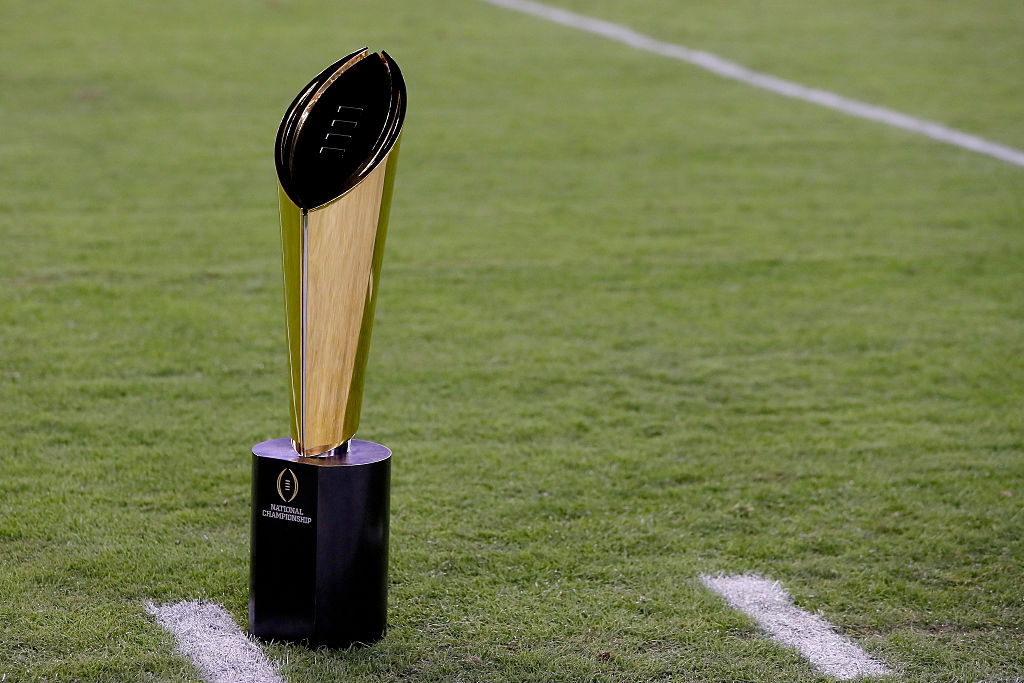 An early look at the college football national champion contenders
An early look at the college football national champion contendersThe Explainer What school could come out on top of the FBS this coming January?
-
 Why baseball's new rules rule
Why baseball's new rules ruleSpeed Read Attendance and viewership have gone up while average game time has gone down
-
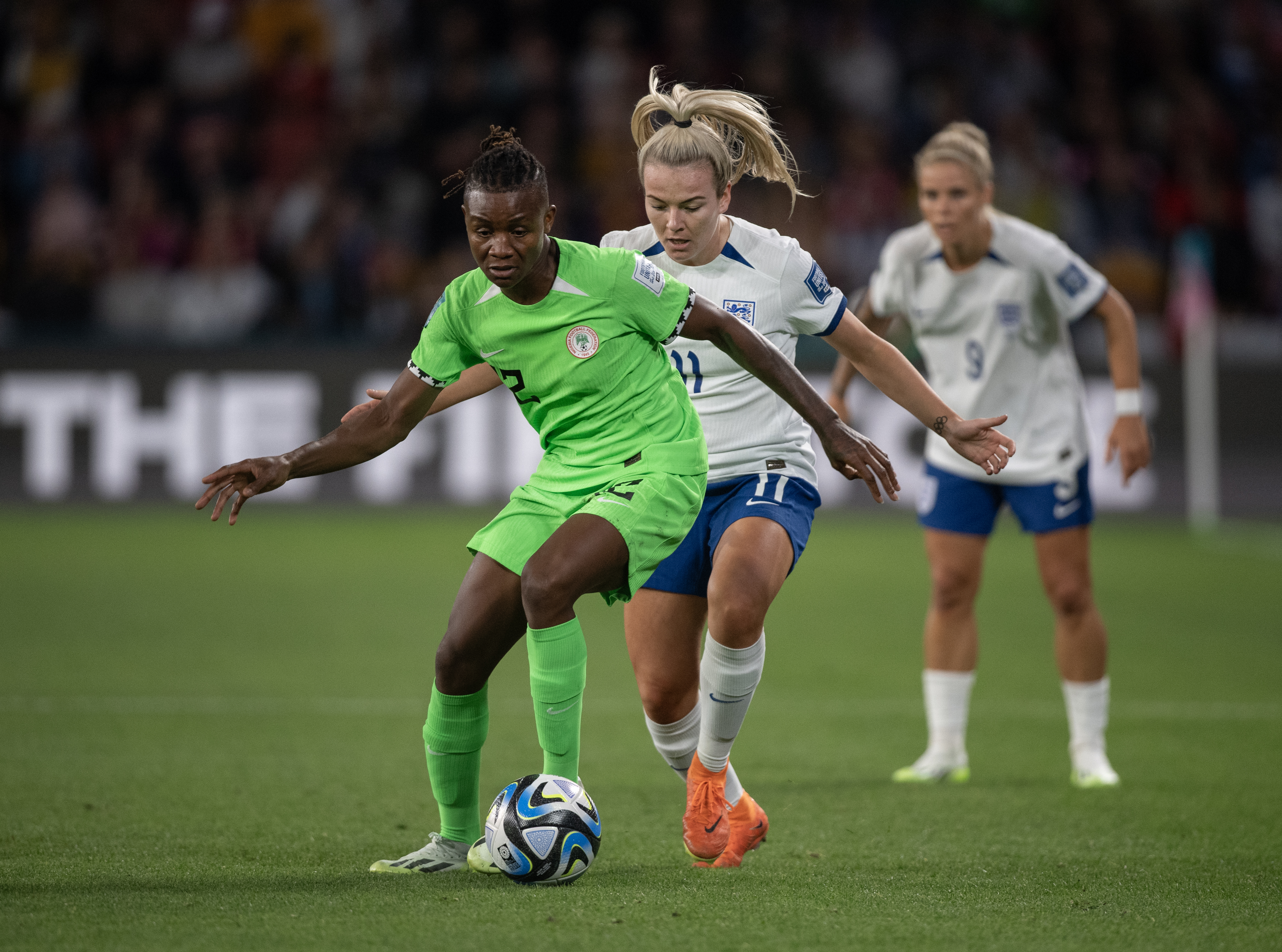 Women's World Cup athletic kits have upped their fashion game
Women's World Cup athletic kits have upped their fashion gameSpeed Read Major brands are embracing gender-neutral and size-inclusive clothing
-
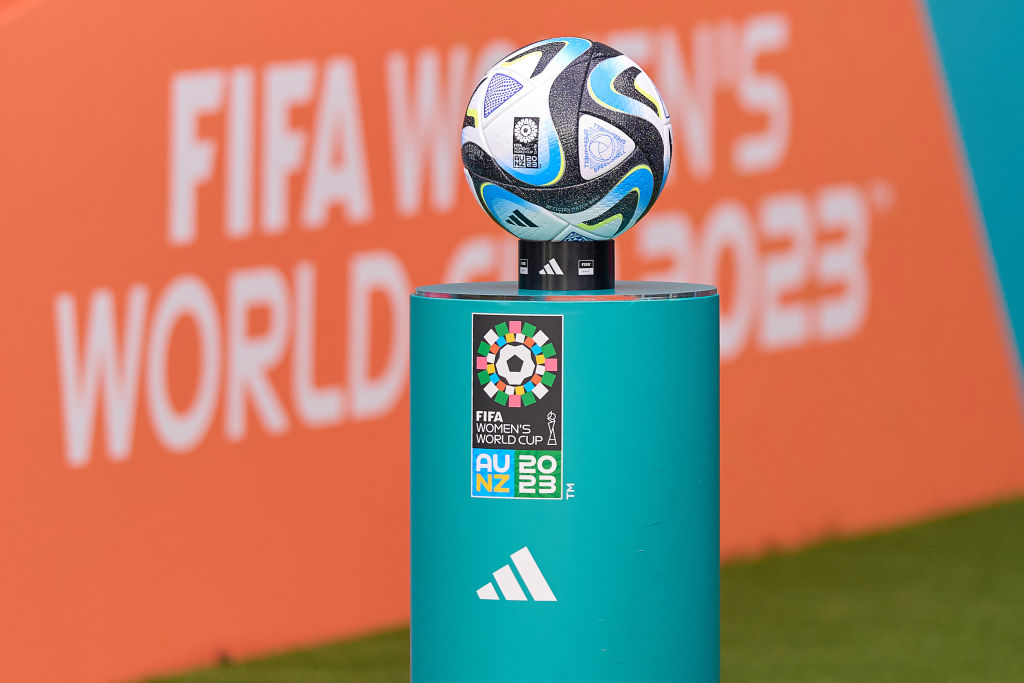 The fight for equal pay
The fight for equal paySpeed Read The Women’s World Cup is the largest women’s tournament ever, but the athletes are still fighting to share in its success
-
 Saudi Arabia's big sports bet
Saudi Arabia's big sports betSpeed Read The recent PGA-LIV Golf merger is just the tip of this oil-funded iceberg
-
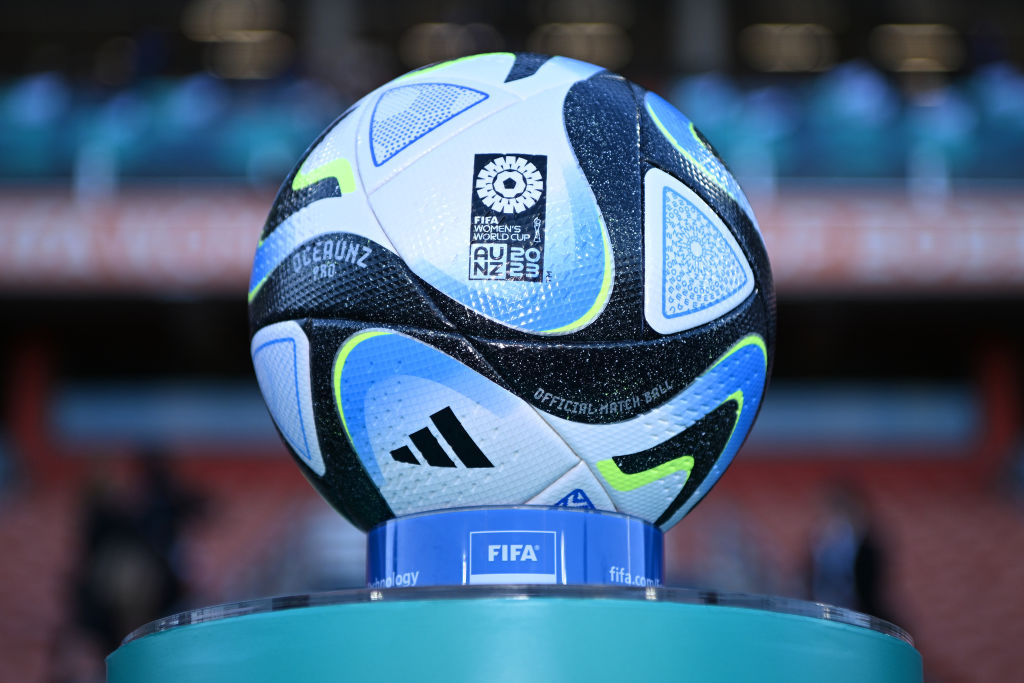 Who will win the 2023 FIFA Women's World Cup?
Who will win the 2023 FIFA Women's World Cup?The Explainer The global tournament has kicked off in New Zealand
-
 Why the PGA Tour is merging with LIV Golf
Why the PGA Tour is merging with LIV GolfThe Explainer The groups are controversially coming together after a rocky relationship
-
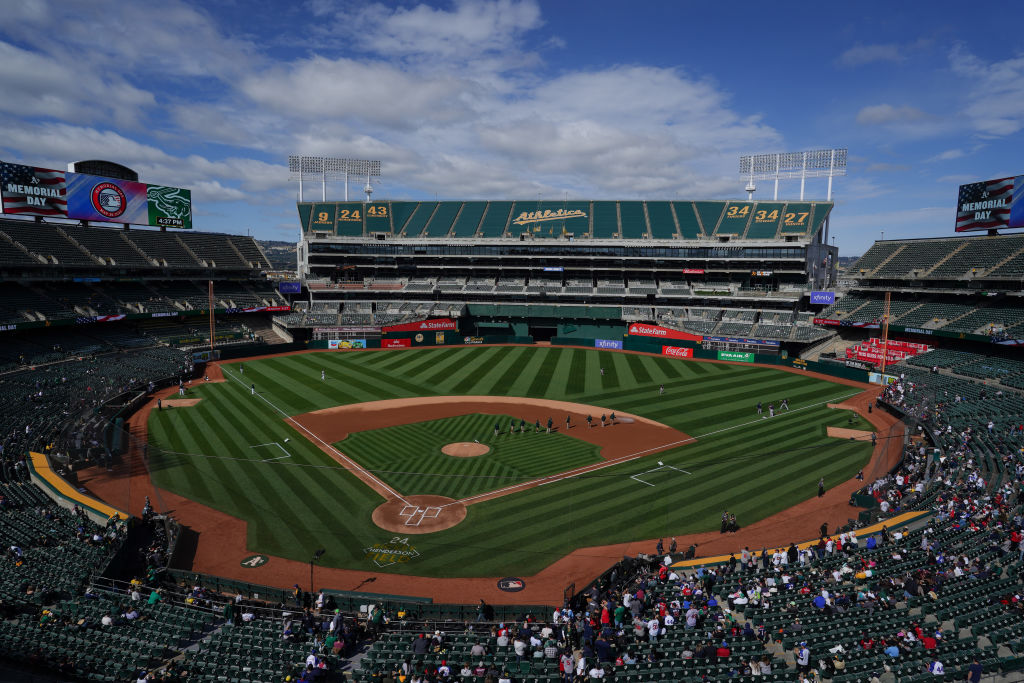 The Oakland Athletics and the worst baseball teams of all time
The Oakland Athletics and the worst baseball teams of all timeSpeed Read The A's have a chance to make baseball history — just not the good kind
